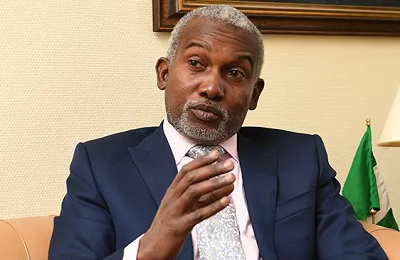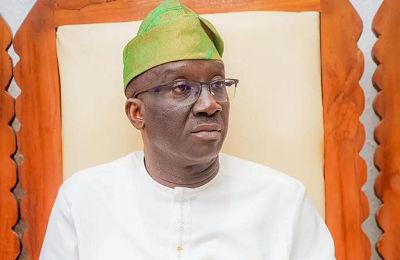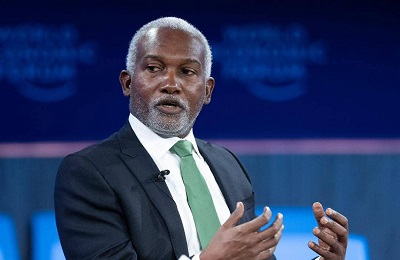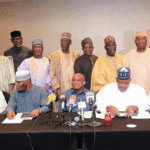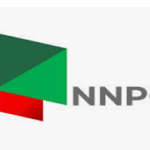ABUJA – Nigeria’s top diplomat has fired a warning shot across Washington’s bow, cautioning that US visa restrictions to ECOWAS member states could face will seriously damage the economic relationship between West Africa and America.
Ambassador Yusuf Tuggar didn’t mince words at the 54th Ordinary Session of the ECOWAS Mediation and Security Council in Abuja, expressing deep concern over reports that all ECOWAS nations could soon face sweeping new United States visa limitations.
The proposed restrictions tie to compliance benchmarks on identity documentation and governance standards, giving affected nations just 60 days to meet Washington’s requirements or face the consequences.
For a region rich in critical minerals and energy resources that America desperately needs, the timing couldn’t be more problematic.
“Non-Tariff Barriers to Deals” – Nigeria’s Blunt Assessment
Tuggar, who chairs the ECOWAS Mediation and Security Council, delivered what amounts to an economic reality check to American policymakers.
“It would be most unfortunate if it comes to pass, because we are a region of opportunities ready to do deals. We would like to do deals with the US, but visa restrictions are non-tariff barriers to deals,” he stated with diplomatic precision that barely concealed his frustration.
The US visa restrictions to ECOWAS policy threatens to create exactly the kind of barriers that make business partnerships difficult to establish and maintain. When government officials, business executives, and entrepreneurs can’t travel freely to negotiate and close deals, economic relationships suffer.
This isn’t just diplomatic posturing it’s a practical warning about real economic consequences that could hurt both sides.
The Treasure Trove America Might Lose Access To
Tuggar made sure to remind his audience exactly what’s at stake, citing specific examples that should make American policymakers think twice.
“We possess critical minerals and even rare earths such as Samarium from the Monazite found in my home State of Bauchi,” he noted, highlighting resources that are essential for everything from smartphones to military equipment.
The minister’s message was clear: West Africa isn’t just another region seeking American investment – it’s a resource-rich area that America needs for its own technological and economic security.
“We in this part of the world are students of the Art of the Deal and have been part of the international trading system even before the modern state system,” Tuggar added, subtly referencing former President Trump’s famous book while asserting West Africa’s long history of international commerce.
The subtext was unmistakable: these aren’t novice negotiators, and they have options.
The Ultimate Diplomatic Chess Move
Perhaps the most pointed part of Tuggar’s message came when he essentially told America that West Africa will prosper with or without US partnership.
“ECOWAS countries and the US have a rare opportunity to create a partnership based on principles of need. We are also a strategic alternative to more distant and politically divergent energy producers,” he explained.
Translation: while America debates visa restrictions, China, Russia, and other powers are actively courting West African nations with fewer strings attached.
The US visa restrictions to ECOWAS policy could hand these competitors a significant advantage in a region where America has traditionally held influence.
“We will do deals for our prosperity; the only question is with whom? Who takes up the opportunities in our region by allowing government officials and technocrats, business executives and entrepreneurs to travel freely back and forth to close the deals?” Tuggar asked.
It was a question that sounded more like a challenge.
The 60-Day Countdown That Could Change Everything
The reported 60-day compliance period creates an artificial urgency that could backfire on American interests. Forcing rapid policy changes from sovereign nations rarely produces the desired diplomatic outcomes.
ECOWAS countries now face a choice: scramble to meet Washington’s benchmarks or explore alternative partnerships that don’t come with such restrictive conditions.
For business leaders on both sides of the Atlantic, the uncertainty creates planning nightmares. How do you develop long-term partnerships when visa access could disappear with two months’ notice?
The policy appears designed to pressure West African governments, but it may instead pressure them to diversify their international relationships away from the United States.
What’s Really at Stake for America
Beyond the diplomatic tensions, the US visa restrictions to ECOWAS policy could cost America access to some of the world’s fastest-growing markets and most abundant natural resources.
West Africa’s population is young, growing, and increasingly connected to global markets. The region’s energy resources could help America reduce dependence on more politically volatile suppliers.
But partnerships require trust, and visa restrictions send a message that America views West African nations as potential security threats rather than valuable partners.
Tuggar’s warning reflects a broader shift in how African nations approach international relationships – they’re no longer willing to accept partnerships that feel one-sided or disrespectful.
The Bigger Picture: A Relationship at a Crossroads
The visa restriction debate represents more than just travel policy – it’s a test of whether America can adapt its approach to a changing Africa.
West African nations are increasingly confident, economically growing, and diplomatically sophisticated. They expect to be treated as equals in international partnerships, not as junior partners subject to American conditions.
Tuggar’s measured but firm response suggests that ECOWAS nations are prepared to walk away from American partnerships if the terms aren’t mutually beneficial.
For Washington, the choice is becoming clear: engage West Africa as equal partners or watch other global powers fill the void.
The US visa restrictions to ECOWAS policy may be intended to improve security and governance, but it risks achieving the opposite – pushing valuable partners toward competitors who offer respect along with economic opportunity.
By Abdullah Korede

